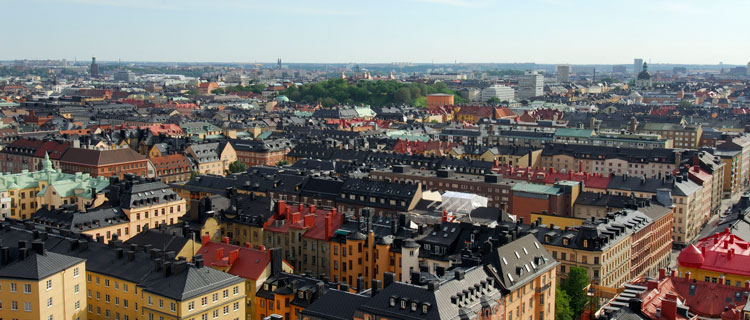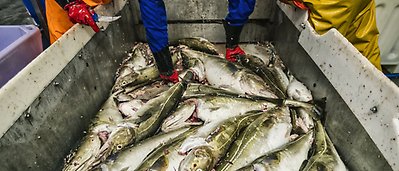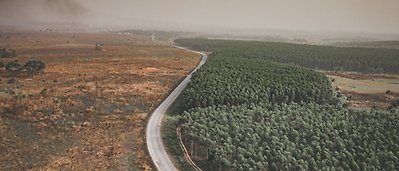
On 27-28 November the Centre hosted Sweden's first gathering of researchers in the urban field to discuss ongoing reearch and future possibilities and to initiate the creation of a nation-wide network. Photo: J. Lokrantz/Azote
Urban research
An urban-focused research network
Centre hosts Sweden's first gathering of researchers as step in creating a network for urban, natural capital, and sustainability issues
On 27-28 November more than 30 of Sweden's researchers within the urban field gathered to discuss ongoing research and future research possibilities, and to initiate the creation of a nation-wide network.
"The field of urban research is currently growing quickly, and we thought that it would be interesting to gather people from around the country to get a better overview of what is happening," says Maria Schewenius, one of the organizers of the conference.
"Meeting like this to discuss the research is also an important step in identifying research gaps and future opportunities," she adds.
Urban research – so 21st century
Urban development and sustainability are high on the international agenda both in research and policy. It has, for example, been proposed that one of the emerging Sustainable Development goals, which will replace the Millennium Development Goals when they expire in 2015, should be focused on creating resilient, sustainable cities. Moreover, one of the core projects within the new global research platform Future Earth focuses on the urban research agenda.
Meanwhile, in Sweden, new centers for urban research have been established in the last decade, adding to the rich and dynamic mix of already existing centers around the country.
Starting up a discussion for the future
The conference gathered participants from across the country to identify opportunities for future research, and ensure that Sweden keeps its place amongst the world-leading countries in urban research.
The first day started with introductions of the represented universities and institutions. These were followed by presentations by the research funding agencies Vinnova and Formas, and an introduction to the new research platform Future Earth.
The second day was spent in discussions about current gaps and unexploited strengths in existing research in Sweden.
Overall the two days were well-received by the participants.
"We found that there are likely many interesting possibilities for new collaborations and for learning from each other. This was only the beginning of a conversation that will continue and that we are very happy that it has been initiated," says Centre researcher Erik Andersson who was one of the conveners of the conference.
The two-day conference concluded with an agreement to hold a next meeting in early summer 2015 to continue the discussions.
The participating universities and institutions:
- The Beijer Institute of Ecological Economics, Stockholm University
- The Department of Earth Sciences, University of Gothenburg
- The Department of Biological and Environmental Sciences, University of Gothenburg
- COWI
- The Faculty of Engineering and Sustainable Development, University of Gävle
- The Faculty and the Research Programmes Board, University of Gävle
- Faculty of Engineering and Sustainable Development, University of Gävle
- The Section for Learning and Environment, University of Kristianstad
- The Centre for Health and Building, KTH – The Royal Institute of Technology
- The Institution of Sustainable Development, Environmental Science and Technology, the School of Architecture and the Built Environment, KTH – The Royal Institute of Technology
- The Department of Thematic Studies - Environmental Change, University of Linköping
- The Centre for Climate Science and Policy Research, Linköping University
- The Department of Civil, Environmental and Natural Resources Engineering, Luleå University of Technology
- The Division of Risk Management and Societal Safety Lund University
- Mistra Urban Futures, Chalmers University of Technology
- The Department of Landscape Architecture, Planning and Management, Swedish University of Agricultural Sciences
- The Swedish Biodiversity Centre, Swedish University of Agricultural Sciences and Uppsala University
- The Department of Ecology, Swedish University of Agricultural Sciences
- The Department of Urban and Rural Development, Swedish University of Agricultural Sciences
- Stockholm Resilience Centre, Stockholm University
- The Department of Geography and Economic History, Umeå University
- The Department of Public Health and Clinical Medicine, Umeå Universit
- The Department of Archaeology and Ancient History, Umeå University
- The Department of Humanities, Education- and Social Sciences, Örebro University
more info
For more information please contact Erik Andersson or Maria Schewenius






